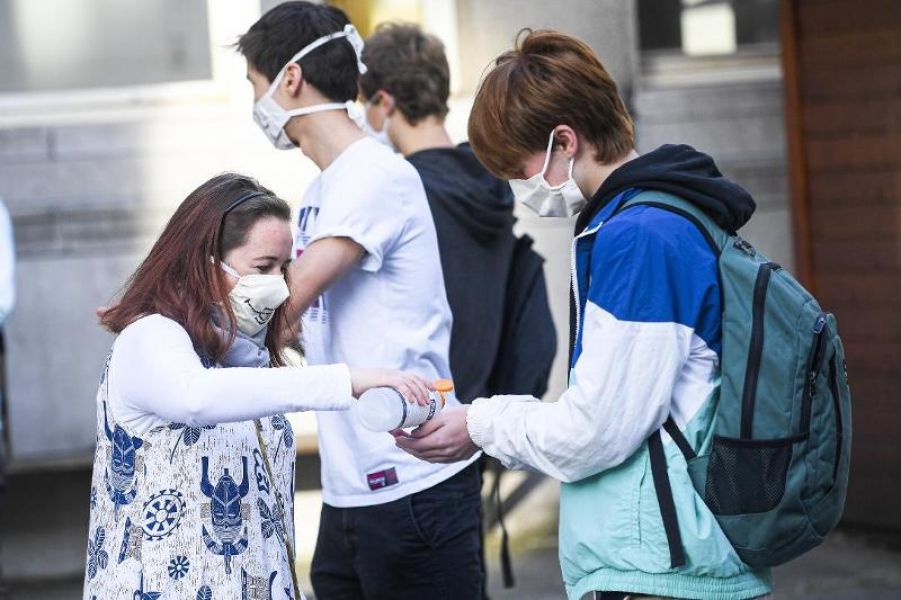Despite fears that making face masks compulsory in schools will not work, the obligation will be accepted fairly easily and become as instinctive as wearing a seatbelt, according to recent brain research at the Free University of Brussels (VUB).
From Tuesday 1 September, all pupils from 12 years old and staff members in secondary education will have to wear a face mask at school. However, as they are not always comfortable and children may not wear them correctly, it is feared that the measure will not be adhered to very strictly.
"Learning new social habits, and automating them, takes time," said professor Frank Van Overwalle of the 'Social Brain Lab' at the VUB, which studies to social workings of the brain, in a press release.
His research into the functioning of the cerebellum (or 'little brain') led to the conclusion that this brain area fulfils social functions as well as motor and emotional functions. Not only do they predict the behaviour of others, but also our own most likely response to that behaviour.
Related News
- Belgium in Brief: What Changes In September?
- Back to school in September: here’s what else is new from Tuesday
- Mandatory face masks for primary school children 'not a good idea'
Over time, such action-response patterns become automated, allowing us to easily detect and correct any irregularities in these patterns. The longer people do something, the more instinctive it becomes, explained Van Overwalle.
"When we learn something, we also learn an automatic sequence that we are not aware of. Like our seatbelt: we get into the car, fasten the seatbelt and put the key in the ignition. We do not think about that anymore, we just do it," he said.
"It does not happen on its own or right away, and in the beginning we still make mistakes. The cerebellum is responsible for this social learning, just as it is responsible for learning motor activities such as cycling."
Usually, someone needs to take the initiative for such a change in behaviour in large groups, but Van Overwalle does not think that will be a problem in this case.
"As this initiative happens in a controlled classroom environment, there is no need to explain everything to the youths and children again. They will do that in school, and that is also where they control it," he said.
In short, his research concluded, there seems to be a good chance that, although both pupils and staff will have initial problems with the obligation, it will soon become the "new normal" without major problems.
Maïthé Chini
The Brussels Times

